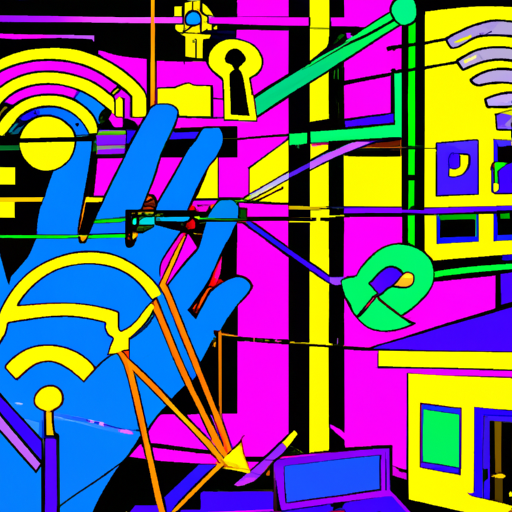Public Wi-Fi has become a staple in our lives. From coffee shops to airports, it’s almost impossible not to find a free network to connect to. After all, who doesn’t love free internet? But have you ever stopped to think about the potential dangers lurking behind those seemingly harmless connections? In this article, we will explore the risks associated with public networks and discover how to navigate them safely.
The Sneaky Sniffers and Snoops
When you connect to a public Wi-Fi network, you are essentially broadcasting your online activities to everyone else on that network. This means that sophisticated hackers can easily intercept and capture sensitive information, such as login credentials, credit card details, and personal data (scary, right?). These cybercriminals are like sneaky sniffers, lurking in the digital shadows, waiting for an unsuspecting victim to connect to an insecure network.
To make matters worse, some individuals may not have malicious intent but still pose a threat. These “snoops” can access shared files and folders on public networks, exposing your personal data to potential vulnerabilities. Imagine having your private photos or important business documents accidentally viewed or even maliciously misused (the horror!).
Opening the Door to Malware
Public Wi-Fi networks are also notorious breeding grounds for malware. With their weak security measures and a multitude of connected devices, these networks provide the perfect environment for viruses, spyware, and other malicious software to spread like wildfire. As soon as you connect your device to an unsecured network, you could be unknowingly opening the door to these digital pests (yikes!).
Once infected, malware can wreak havoc on your device. It can steal your personal information, slow down your device’s performance, and even hold your files hostage until you pay a hefty ransom (talk about a nightmare!). So, that innocent-looking network name may not be so innocent after all.
How to Protect Yourself
Now that we’ve uncovered the dangers of public Wi-Fi, it’s time to arm yourself with the knowledge to navigate these networks safely. Here are some tips to help keep your online activities secure:
- -Avoid connecting to public networks whenever possible; yes, even if that means enduring internet withdrawal for a bit.
- -If you must connect, use a virtual private network (VPN). A VPN encrypts your internet connection, making it almost impossible for anyone to intercept your data.
- -Always verify the network you are connecting to. Check with the establishment’s staff or look for official signage to ensure you are connecting to a legitimate network.
- -Disable automatic connection to Wi-Fi networks on your device. This will prevent your device from connecting to unknown or untrusted networks without your consent.
- -Update your device’s software regularly. Software updates often contain security patches that help protect against known vulnerabilities.
- -Consider using cellular data instead of public Wi-Fi when accessing sensitive information, such as online banking or making purchases.
By following these precautions, you can minimize the risks associated with public Wi-Fi and keep your personal information out of the clutches of hackers, sniffers, snoops, and malware.
So, the next time you’re tempted to connect to that enticing public Wi-Fi network, remember the potential dangers that lie beneath the surface. Stay vigilant, arm yourself with knowledge, and protect your online privacy and security. After all, the internet may be free, but the cost of a compromised identity is far too high.









